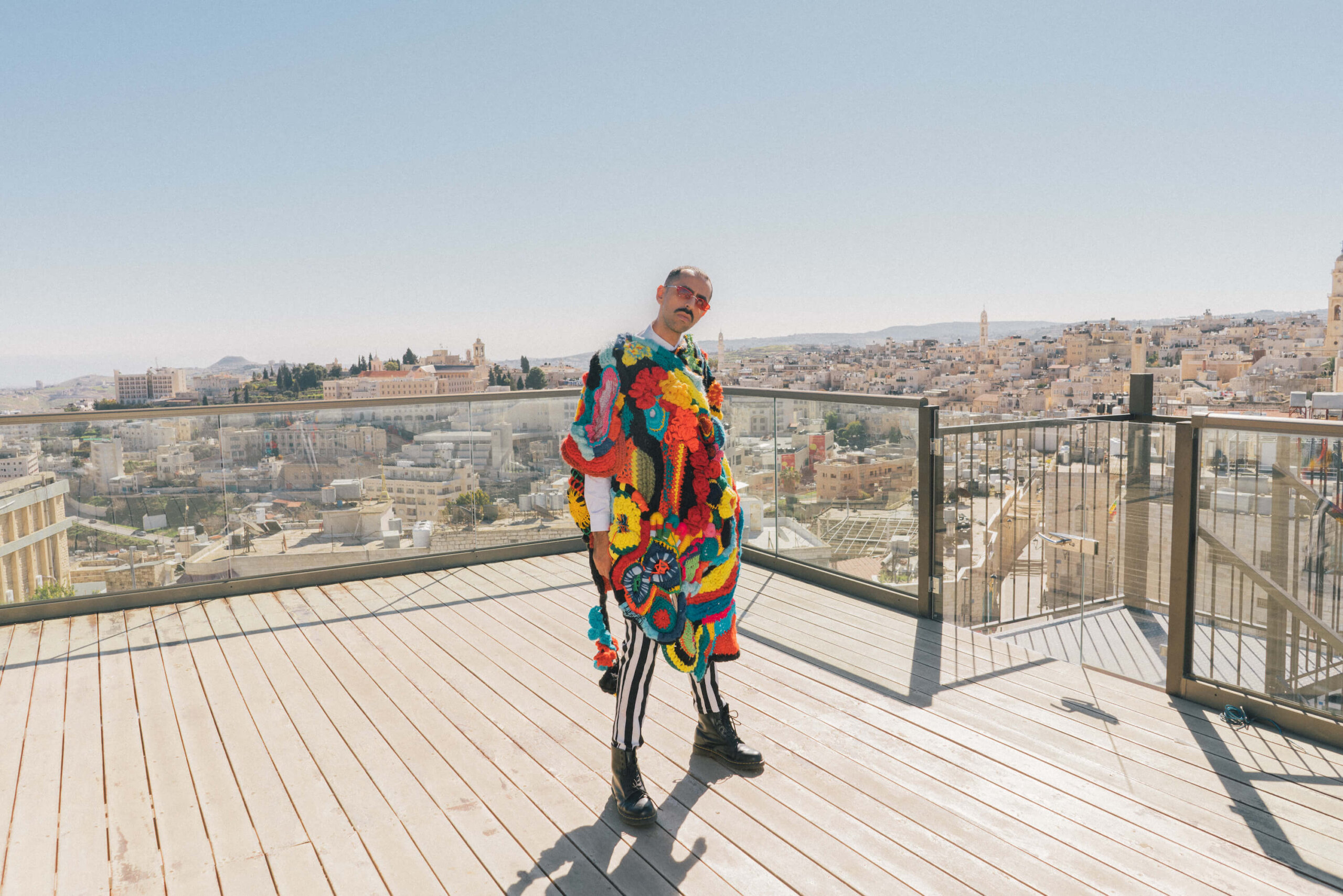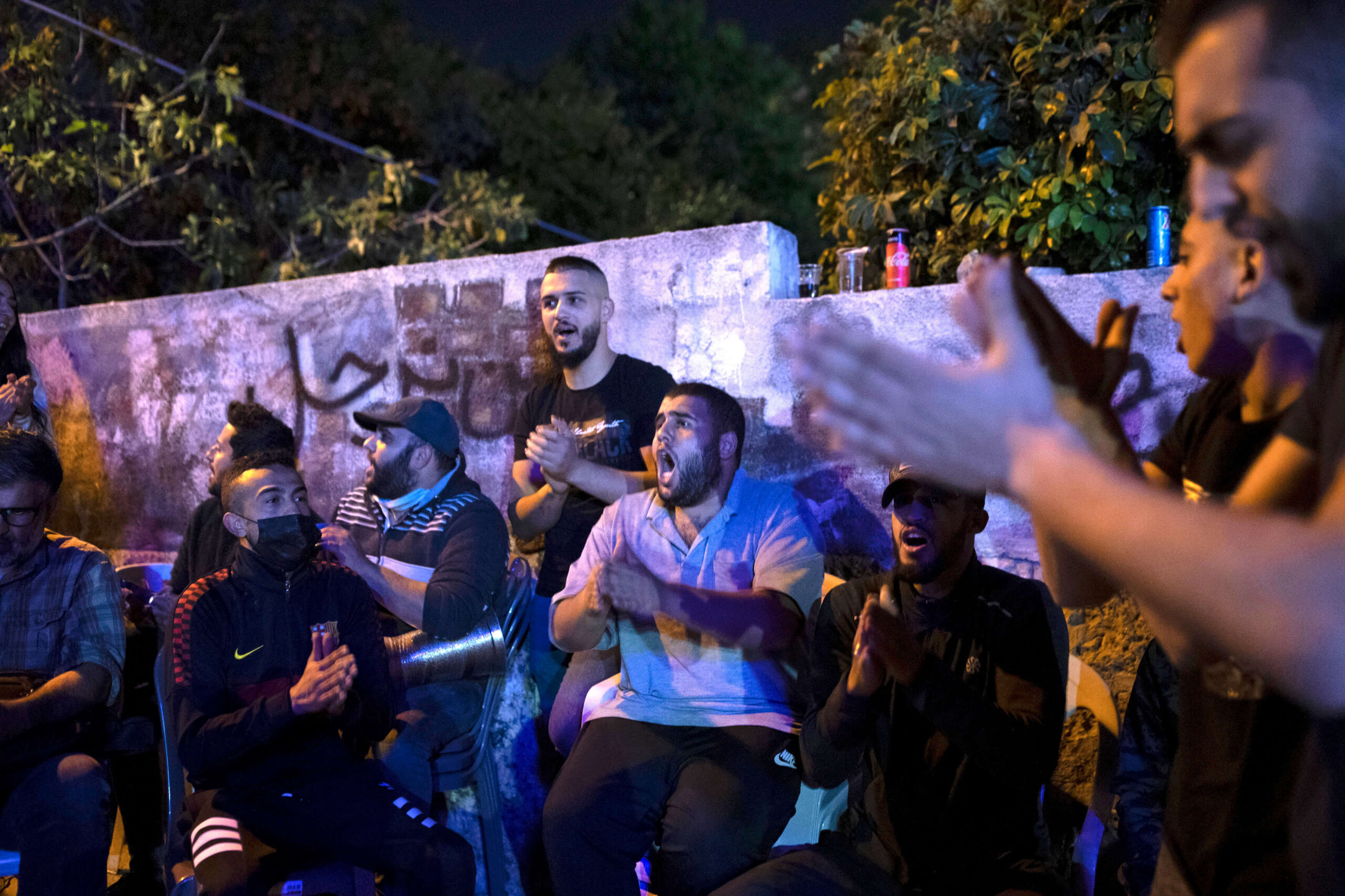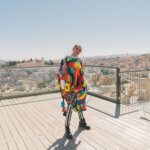I live in Sheikh Jarrah, East Jerusalem, against the backdrop of the screams of my neighbours and fellow Palestinians running from rubber bullets, soldiers riding steroid-pumped horses, the stench of skunk water, stun grenades and live bullets that the Israeli military use to deter protesters. Today, I don’t know what I need to fear most: the Israeli military, the armed settlers or the lynch mobs looking to kill Palestinians, with chants of “death to Arabs” ringing through my neighbourhood before I sleep.
The international media started reporting on Palestine last month after Hamas started shooting rockets. But the story doesn’t start there. The forced expulsions in East Jerusalem have long been part of Israel’s strategy to limit the Palestinian presence in Jerusalem in order to claim full sovereignty over it. In May, two amazing Palestinian siblings from one of the families being expelled started the hashtag #SaveSheikhJarrah and mobilized us all to defend our home.
I’m a queer Palestinian singer, songwriter and activist. Over the past month, peaceful protesters have come to our neighbourhood to sing, pray and host Ramadan Iftars with the threatened families. Israeli settlers have also been coming to Sheikh Jarrah under the protection of the Israeli military. As soon as we start singing or chanting or raising Palestinian flags, the Israeli forces start to attack protesters. I know these protesters—they are men, women, children, Muslim, Christian, atheist and queer Palestinians. I have also seen many Jews and Israelis join Palestinians in the calls to end the occupation, to cut military funding to Israel, to stop ethnically cleansing Palestinians. This has been one ray of hope through all of the despair I’ve witnessed over the past few weeks.

Credit: Courtesy Fadi Dahabreh
The protests started in the streets, from the people fed up with living under Israeli control and having our existence erased through forced expulsions and discriminatory laws such as the “nation-state” law. This law specifies that the State of Israel is “the nation-state of the Jewish people.” If this place is holy to the three monoistic religions, why should one have authority over the others? Why would the Israeli military attack Palestinian Muslim worshippers with stun grenades and rubber bullets at al-Aqsa Mosque? Why would they oppress Palestinian Christians who are trying to get to the Church of the Holy Sepulchre during the week of Easter? The Holy Land is shared; it shouldn’t belong to one religion or ethnicity.
A cease-fire has been declared since the end of May, but the violence has been heartbreaking to watch and endure. The military has been oppressing, shooting and arresting my friends, family, neighbours and other Palestinians across the West Bank, Gaza and the Palestinian land that was taken from us during our displacement (what we call Nakba, or catastrophe) in 1948. Sheikh Jarrah is an example of how Israel was created through the ethnic cleansing of Palestinians from this land—and the Nakba is still ongoing.
“None of us are free until there is freedom for all.”
This fight for the freedom of Palestine is intersectional: It is a feminist issue, a queer issue, a racial justice issue. While many argue Israel fights against LGBTQ2S+ discrimination, soldiers don’t stop to ask Palestinians if they are queer before attacking them. They attack indiscriminately; we are all receiving collective punishment. They do not stop to check whether there are kids or women or gay people before bombing Gaza (not that the lives of men or boys are any less valuable). In fact, there have been many videos of soldiers attacking my friends, dragging women by their hijabs, stepping on their necks and pinning them to the ground.
And yet, now that Palestine has made world news, there is radio silence. LGBTQ2S+ celebrities in particular have failed to speak out against the violence and discrimination. Why does the world stay quiet when it is clear that Palestinians are being oppressed?
Some have dared to speak up, like queer icons Mykki Blanco and Alok Vaid-Menon. They understand that queer liberation isn’t just about waving a rainbow flag or having a Pride parade. They understand that we must remember the spirit of Stonewall, which started as a protest demanding queer liberation for all. None of us are free until there is freedom for all.
Being neutral means continuing to support the occupation and oppression of all Palestinians, queer and non-queer alike. I know that high-profile or celebrity endorsements won’t free Palestine, but they could raise awareness and educate the world about what is happening. The only way that Palestine will be freed is once people realize that they hold the power.


 Why you can trust Xtra
Why you can trust Xtra


